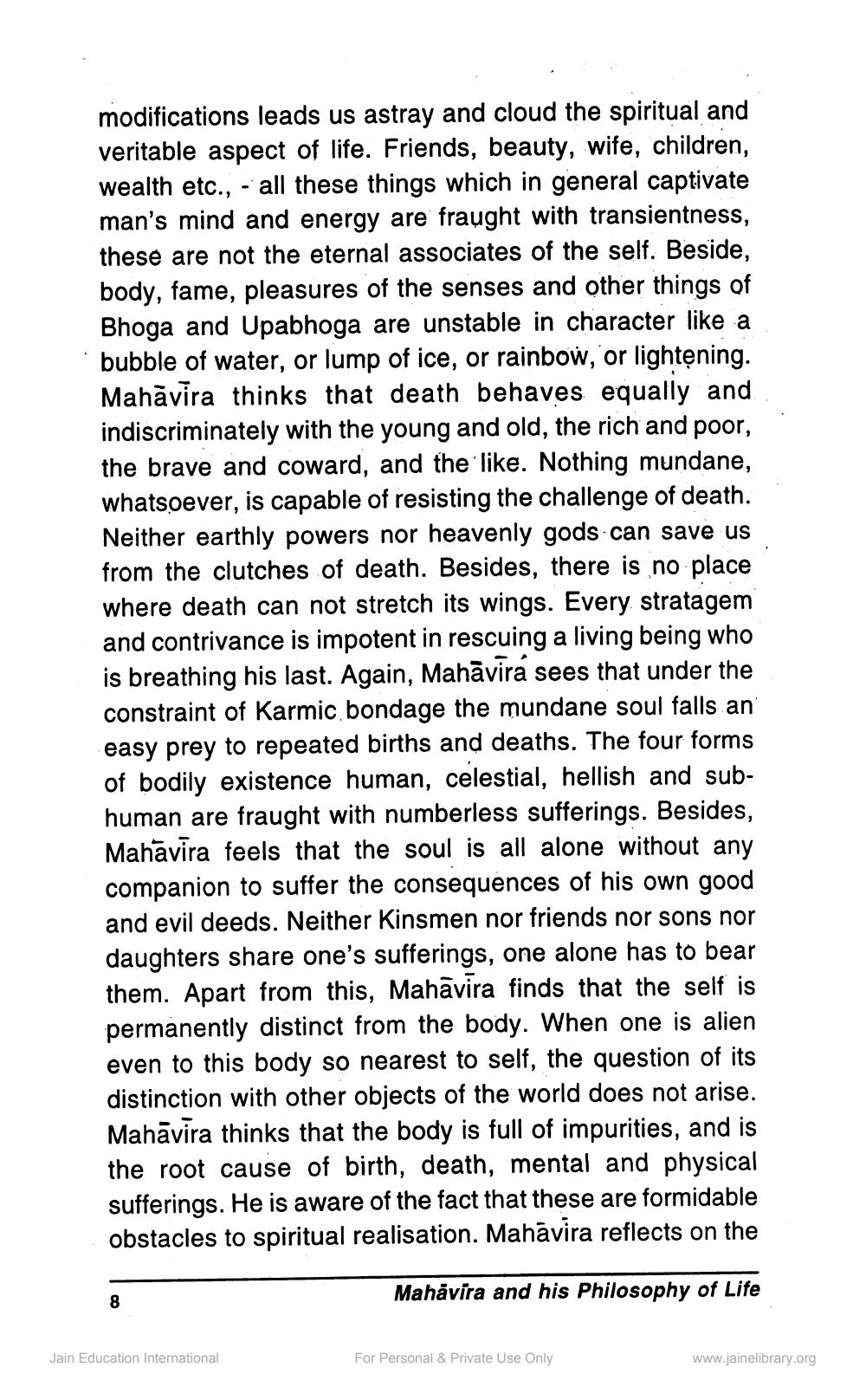________________
modifications leads us astray and cloud the spiritual and veritable aspect of life. Friends, beauty, wife, children, wealth etc., - all these things which in general captivate man's mind and energy are fraught with transientness, these are not the eternal associates of the self. Beside, body, fame, pleasures of the senses and other things of Bhoga and Upabhoga are unstable in character like a bubble of water, or lump of ice, or rainbow,'or lightening. Mahavira thinks that death behaves equally and indiscriminately with the young and old, the rich and poor, the brave and coward, and the like. Nothing mundane, whatsoever, is capable of resisting the challenge of death. Neither earthly powers nor heavenly gods can save us from the clutches of death. Besides, there is no place where death can not stretch its wings. Every stratagem and contrivance is impotent in rescuing a living being who is breathing his last. Again, Mahāvira sees that under the constraint of Karmic bondage the mundane soul falls an easy prey to repeated births and deaths. The four forms of bodily existence human, celestial, hellish and subhuman are fraught with numberless sufferings. Besides, Mahavira feels that the soul is all alone without any companion to suffer the consequences of his own good and evil deeds. Neither Kinsmen nor friends nor sons nor daughters share one's sufferings, one alone has to bear them. Apart from this, Mahāvira finds that the self is permanently distinct from the body. When one is alien even to this body so nearest to self, the question of its distinction with other objects of the world does not arise. Mahāvira thinks that the body is full of impurities, and is the root cause of birth, death, mental and physical sufferings. He is aware of the fact that these are formidable obstacles to spiritual realisation. Mahāvira reflects on the
Mahavira and his Philosophy of Life
Jain Education International
For Personal & Private Use Only
www.jainelibrary.org




